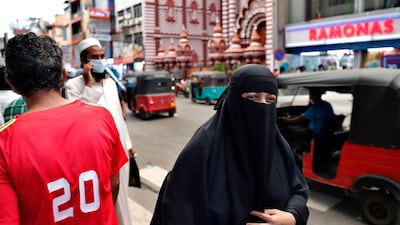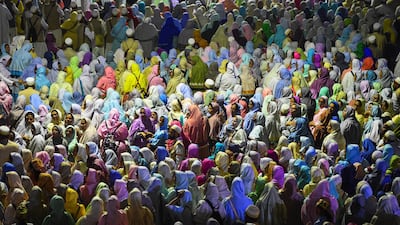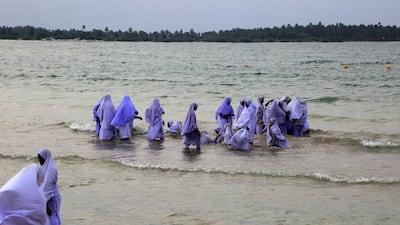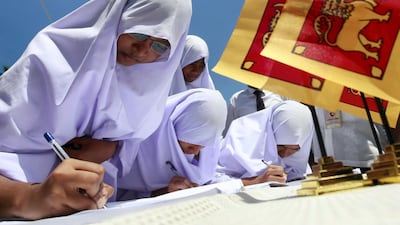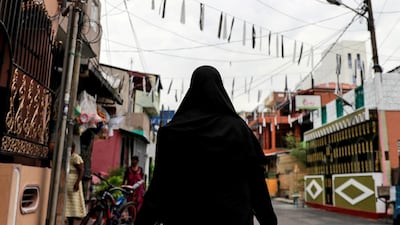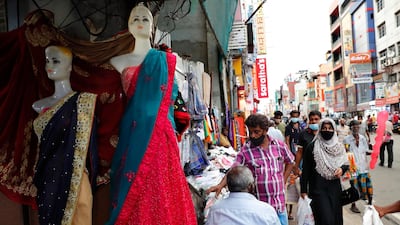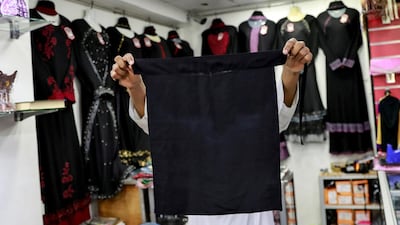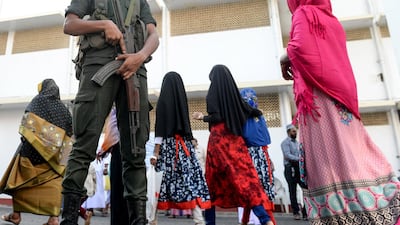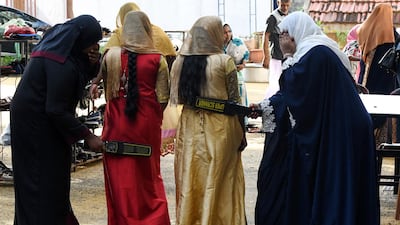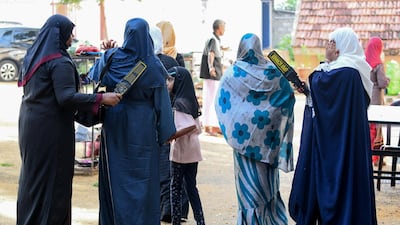Sri Lanka on Saturday announced plans to ban face coverings worn by some Muslim women, and said it would close more than 1,000 Islamic schools, known as madrassas, citing national security.
Minister of Public Security Sarath Weerasekara said he signed a paper on Friday seeking the approval of the Cabinet to ban garments worn by Muslim women that cover the face.
Such dress “has a direct impact on national security,” Mr Weerasekara told a ceremony at a Buddhist temple on Saturday.
“It is a sign of religious extremism that came about recently. We will definitely ban it,” Mr Weerasekara said, in a video supplied by his ministry.
Sri Lankan President Gotabaya Rajapaksa also authorised the detention of people suspected of hate crimes for up to two years for "deradicalisation", under the controversial Prevention of Terrorism Act.
The new rules, effective from Friday, allow the detention for 24 months of anyone suspected of causing "acts of violence or religious, racial or communal disharmony or feelings of ill will or hostility between different communities" at "re-integration centres".
The move comes ahead of the second anniversary of the 2019 Easter Sunday attacks that killed 279 people and wounded more than 500.
Two local Muslim groups that had pledged allegiance to ISIS have been blamed for the attacks at six locations – two Roman Catholic churches, one Protestant church and three top hotels.
But the new regulations do not only target Islamic extremism and could apply to any religious group or community.
The wearing of face coverings was temporarily banned after the Easter Sunday attacks.
Mr Weerasekara said on Saturday that the government would also ban more than 1,000 madrassas because they were not registered with the authorities and did not follow the national education policy.
Muslims make up about 9 per cent of Sri Lanka's 22 million population, while Buddhists account for more than 70 per cent. Ethnic minority Tamils, who are mainly Hindus, form about 15 per cent of the population.
Tensions between Muslims and Buddhists resurfaced after the 2019 bombings, which also seriously damaged the country's tourism-reliant economy.
A presidential commission that probed the attacks called for the banning of both Islamic extremists as well as ultra-nationalist Buddhist groups, which were accused of feeding off each other
